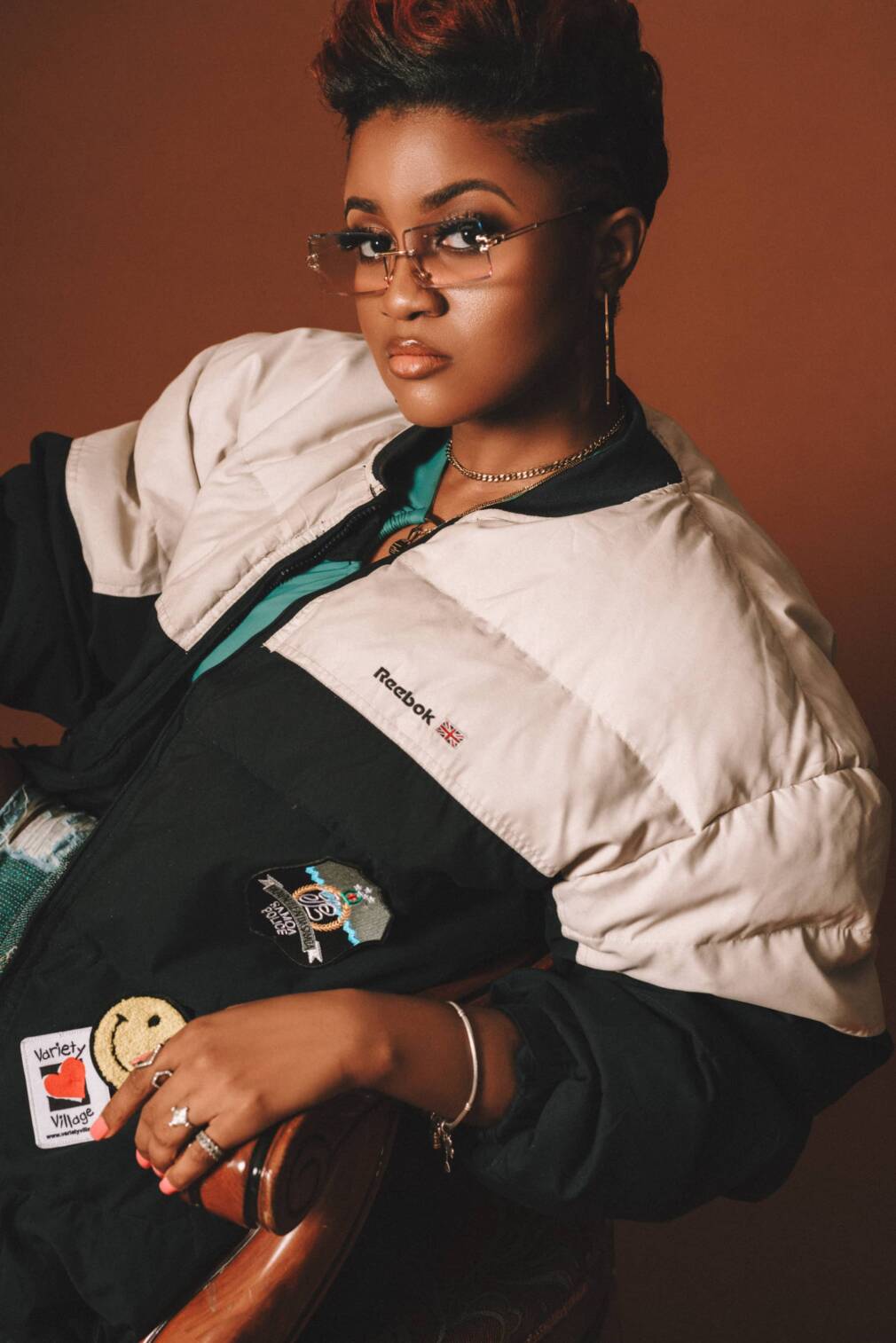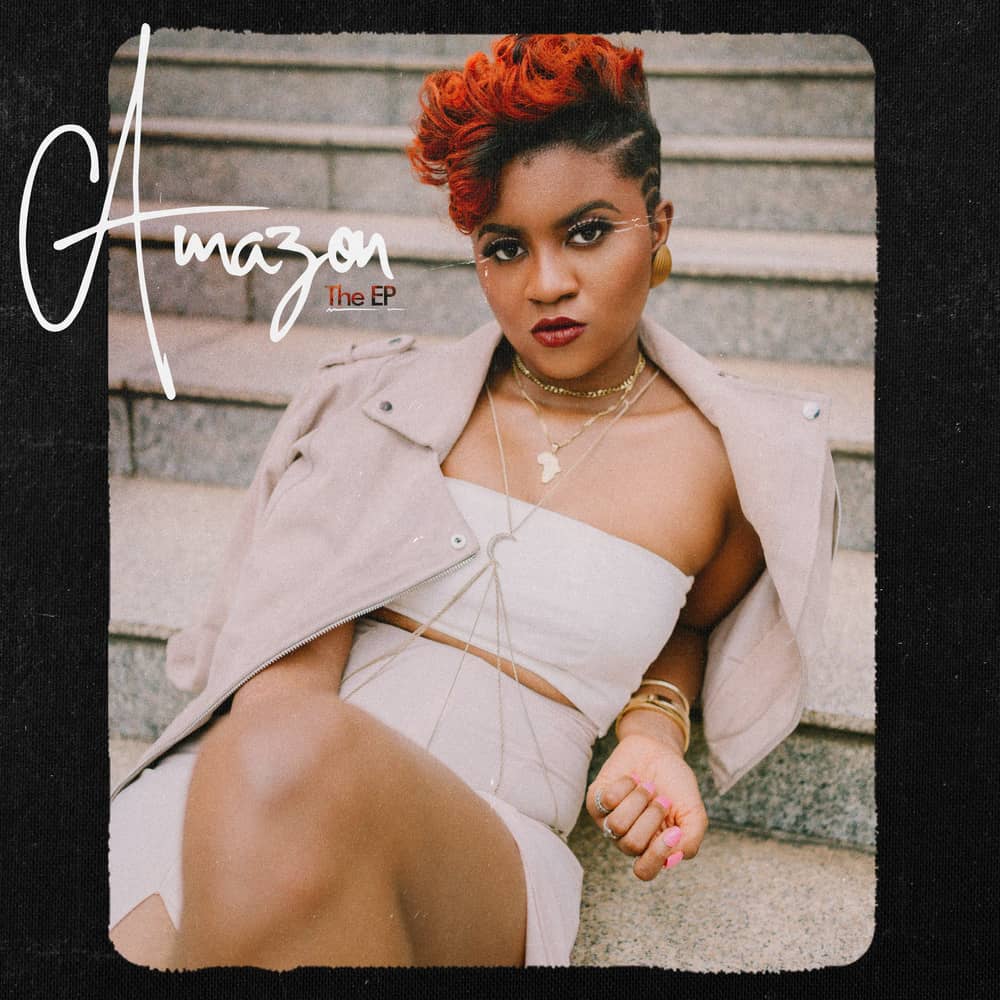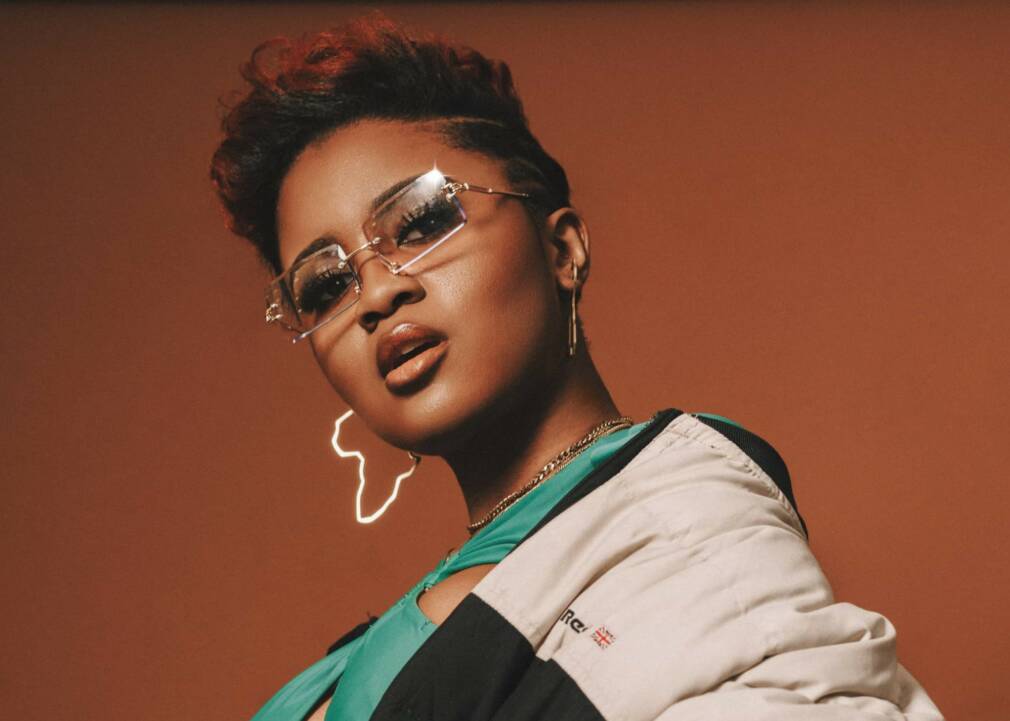Following her collaboration with Busiswa and Oxlade, Dunnie wrapped up 2021 with the release of her fourth project, Amazon the EP. The project features artists from different walks including Nigeria’s The Cavemen. to Kenya’s H_Art the Band and Tanzania’s Darassa.“Collaborating with artists from all over Africa is my favorite thing to do” Dunnie says. The project enthralls from the alluringly vain “Rich Aunty Vibes”, to the daring “You Don’t Know” and unabashed profession of love in “Nakupenda”.
Over the years, she’s collaborated with artists across parts of Africa including Busiswa, Yemi Alade, Becca, Niniola, Rowlene, Wande Coal etc. Her collaboration with Busiswa on “Love Song” culminated in an AFRIMA nomination last year. In April 2021, she produced Shontelle’s comeback single “House Party”, a reggae number that was minted as a NFT. Recently, Gemini Major connected Dunnie and Amapiano forerunner, Focalistic for “Ewele”. In August, Dunnie was profiled as one of the nine kick-ass women to know in the Nigerian music scene by Global Citizen.
The singer’s career kicked off as an alumnus of The Sarz Academy, alongside producers like P.Priime, Tempoe etc. Dunnie has since garnered reverence as not just Nigeria’s leading female producer but one of the few talents being an active artist and producer. In 2019, Dunnie emerged as beneficiary of Mr Eazi’s Empawa initiative, through which she released her first ever music video, “Foolish”. She was one of the regional judges at Access All Stars singing competition alongside Seyi Shay, Tee-Y Mix, and Kaffy as main judges.
Dunnie has since become the go-to person for music scoring in Nigeria, having worked with multinationals like Ciroc, Oppo, Kotex, Keystone bank among others. She is currently in partnership with Audio Girl Africa to mentor girls/women who want to be producers, sound engineers, and DJs. Of this, she says, “my position as a producer in the Nigerian music industry is peculiar because I know there are other women that will be inspired and want to do it.”
You’re affiliated to quite a number of South African artists. How did that come about?
It probably started with the song I produced for Busiswa and Becca, then my feature on Busiswa’s album and later “Overdose”. A lot of them started to reach out including Gemini Major and some DJs. Then, there are people like Cassper Nyovest who discovered me just via Twitter. It’s usually through different ways. The love from South Africa is surreal.
Incredible! Do you sometimes experience an identity crisis, having to balance being an artist and producer?
I don’t. Music is an expression for me and it comes differently. It’s not like I’m a doctor and musician. Being an artist and producer are not far apart, so it’s about the same for me. The only difference is in the strategy and business and that’s usually in the hands of my management.
Do you make an effort to be seen for each of these personas differently?
When I first decided to start producing, my manager was skeptical about it because it’d be difficult merging them. He initiated the idea of separating the brands and I thought it was a waste of time since it’s the same person. Everything rubs off each other. Some people love my music as an artist, while some find me through other artists I produce for. Like Zamorra for instance, I’ve gotten so much love since the release of Storms & Rainbows.
Ah, Storms & Rainbows! You produced six of the eight tracks. Is that your first time producing a project?
It’s the first one that’s out. I’ve produced others but they’re not out yet.
For you, is there a distinction between producing a project and producing a single?
Absolutely. When artists have a story and idea behind the music, there’s a certain sonic texture they want for the project. Whereas, singles can be a gamble whereby you make random beats and start playing it to people – unlike projects where you create from the start. It took an experience with Adekunle Gold to teach me that. With Zamorra, apart from one song, we created the entire project together because we had an idea of what it ought to sound like. Projects are relatively more organic and intentional while singles can be experimental.
Which would you rather do?
Definitely projects. When I first started, my tag was ‘Oladunni the Beatmaker’ due to my then-intention to just make beats, sell and make money but as I grew, I’ve evolved from a beatmaker who wants to make and just sell beats to a music producer. As a music producer, I enjoy producing and not making beats as they’re different. When producing, you’re invested in the whole process including songwriting and the likes. It’s more satisfying for me and I feel like that’s how to make classics. I still send beats when artists ask for them but I just don’t enjoy it anymore.
Is that in any relation to you coordinating the acoustic performance of “Now That You’re Mine” from Storms & Rainbows?
That’s music directing.
You direct music too?
I do. I don’t trumpet it because I cannot be everything I am to everybody. I was invested in that one because Storms & Rainbows is like our project. I feel like we created magic and it has to be expressed the right way. When he mentioned the live session idea, I knew I had to step in to direct the music in a way I already saw in mind. So yes, I direct music but it’s hush – before people get confused. I do a lot of things [laughs].

You’ve also scored songs for multinationals. It has become something your brand is well known for.
It all started from Sarz Academy. One of our instructors gave a lesson on the other ways we can monetize our talents without essentially depending on performing or recording artists. They mentioned music for movies, brands, therapy, games, elevator music etc. I was open to it and after I tweeted about it one day, DJ Klem, a well-known music supervisor in Nigeria, reached out and sent me a synopsis for a Maggi gig. Afterwards, I did a couple others and that’s how people started seeing me as the go-to person for music for brands. Shout to social media, DJ Klem and Niyola, who also put me on.
Which of the experiences would you reckon as the most notable?
It should be the Ciroc gig because of how it happened. A female producer from Barbados, also a fan of Sarz, was fascinated about me being the only woman in the academy and reached out via Instagram DM. We kept in touch and when she visited Nigeria, we made music for fun. She started pitching them when she returned to the Caribbean and one of the brands that picked something we worked on was Ciroc. It’s interesting because we just made music with almost nothing in mind. Sometimes, relationships are everything because for someone you’re meeting today, you never know what the person will bring to your life even though they don’t look like it.
You dropped Amazon recently. Tell us where you were going with the project?
The story behind Amazon is one of strength because I’ve had to work so hard to get everything that I’ve been able to accomplish. My story is that of a strong woman that’s also very vulnerable and that’s what the project is about. When you listen to the songs, you can hear vulnerability, strength, bad-assery, love, resilience etc.
You have quite an interesting lineup of features, especially from East Africa.
I get so much love from East Africa – from Tanzania, Kenya, Uganda, Rwanda etc. The numbers, reviews, and messages from there have been crazy. So, doing a song with these artists is like sending back the love. For Cavemen, we’ve been meaning to work since we met at Gidi Fest 2019 where we performed. I just didn’t have the right song because I always like to hear the person on the record. The features in the project were seamless because they’re with people that genuinely like my sound and wanted to work with me.
What’s the creative process of putting those eight tracks together to make a body of work?
The sonic idea for Amazon is Afrobeats with a cinematic expression. You won’t understand what I mean until you mute your screen while watching Netflix and then play songs from Amazon underneath. You’ll realize that every song in the project can fit into a motion picture. The primary intent is to create a project that’ll be a goldmine for synchronization.
Did any one of the tracks give you a harder time?
Definitely “Rich Aunty Vibes”. We had the idea from a movie where some girls got wealthy and the soundtrack for that scene references men instead. I wondered if there were no song that actually speaks to women making and splurging money, in the entire history of Afrobeats. I said I was going to do it and got to work. The first record we made was Trap-ish and felt unoriginal, then I tried again and again before getting it right with the third record.
How is your collaboration with Audio Girl Africa important to you?
It’s the core of who I am. One issue I had when I wanted to learn production was that I couldn’t see anyone that looked like me in Nigeria. I had to inspire and encourage myself a lot of the time. Now, my position as a producer in the Nigerian music industry is peculiar because I know there are other women that will be inspired and want to do it. It’s a very purposeful undertaking for me. A lot of times, we go to high schools to catch them young. So, while they apply for college, they know this is also a possibility and not just for men.
How important do you think it is for female artists to collaborate with female producers?
The intentionality, platform and opportunity will be nice but I have a bias. I’ll rather you work with me because you like my work and not just because I have a vagina. Also, speaking as an artist, when we look for a producer, empowering them is not what’s at the fore. We’re thinking of who can deliver the next hit and they don’t mind it coming from a man or woman. I also think it’s an unfair expectation because female artists don’t have it easy either. They’re fighting a lot of battles already and putting female producers on might be a lot. Lastly, let people work with who they like. For instance, while working with Wande Coal, he was so fascinated that he’d introduce me to everyone and urge them to work with me. I don’t think it’s because I’m a woman; he just genuinely loves my job. That’s why he’ll go as far as putting me on. I agree female producers could do with a lot more support but we should cut female artists some slack.
What’s the next phase like for Dunnie?
The next phase will be more collaborations with artists from all over Africa – as a producer and artist. It’s my favourite thing to do. I’ll also be exploring different sounds, especially our traditional ones that we’ve not explored enough this modern day. My sound since Amazon has evolved and I can’t wait to put out new music already.
AMAZON The EP by Dunnie, still out on all platforms.





